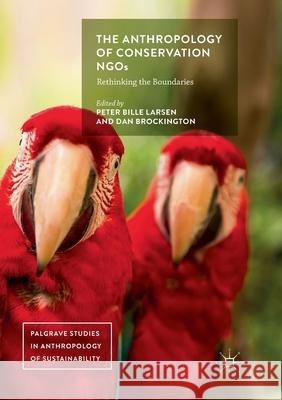The Anthropology of Conservation Ngos: Rethinking the Boundaries » książka
topmenu
The Anthropology of Conservation Ngos: Rethinking the Boundaries
ISBN-13: 9783319868943 / Angielski / Miękka / 2018 / 289 str.
Kategorie:
Kategorie BISAC:
Wydawca:
Palgrave MacMillan
Seria wydawnicza:
Język:
Angielski
ISBN-13:
9783319868943
Rok wydania:
2018
Wydanie:
Softcover Repri
Ilość stron:
289
Waga:
0.36 kg
Wymiary:
21.01 x 14.81 x 1.65
Oprawa:
Miękka
Wolumenów:
01
Dodatkowe informacje:
Wydanie ilustrowane











